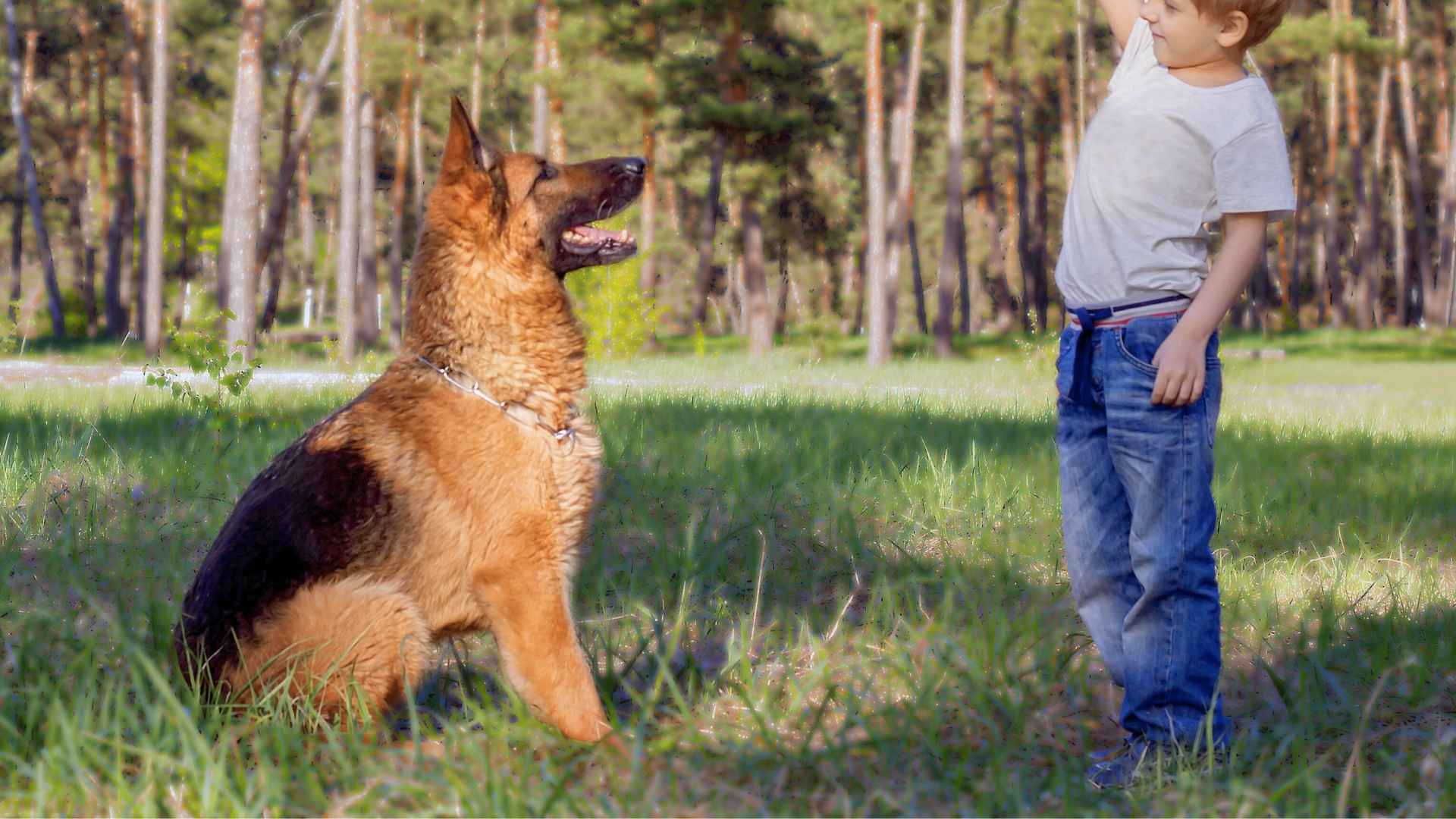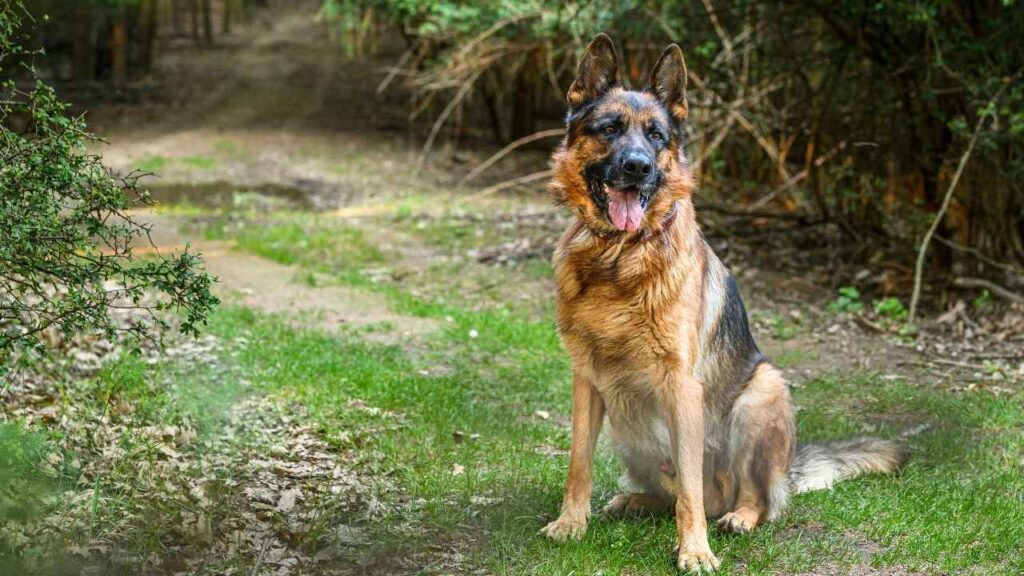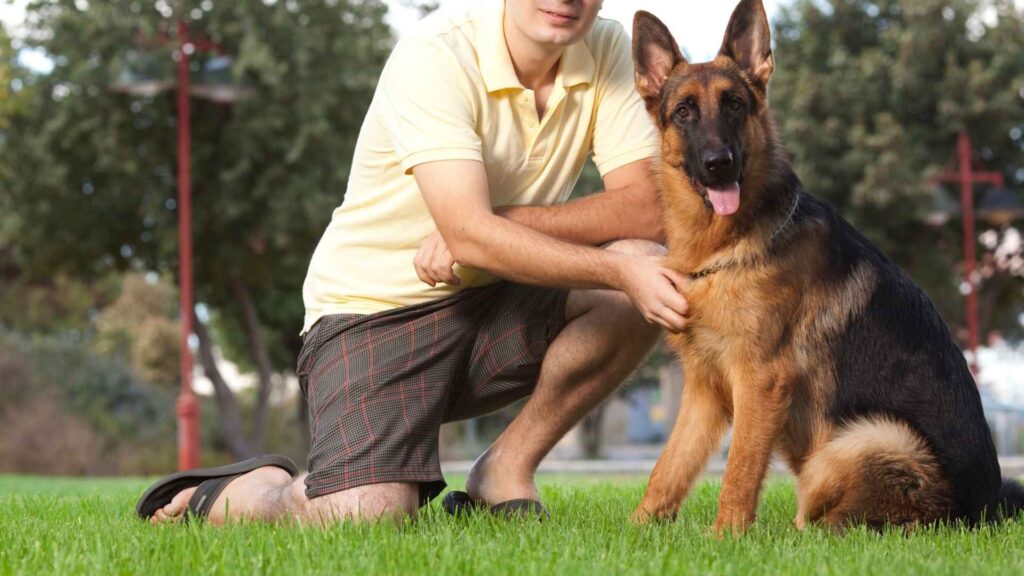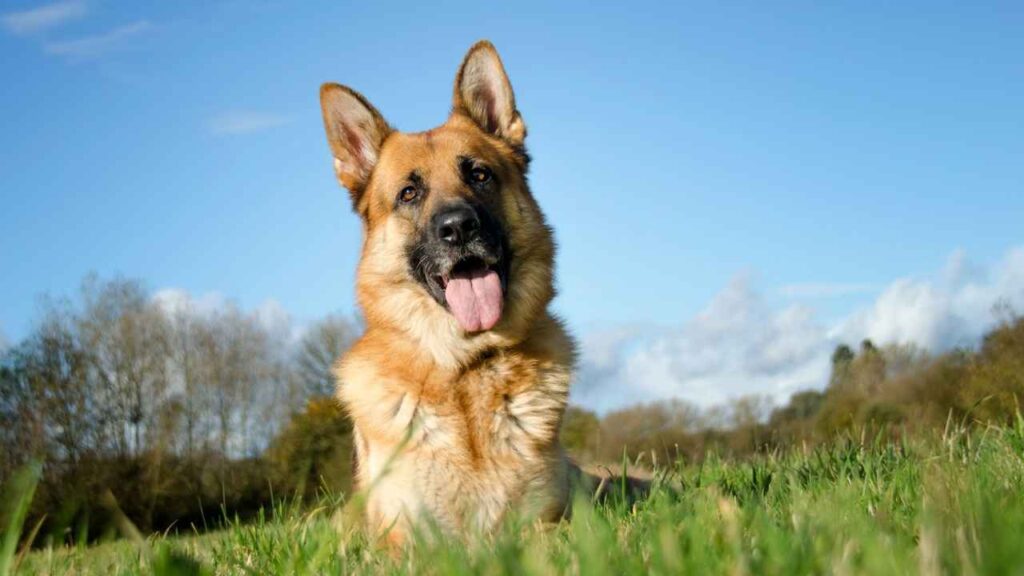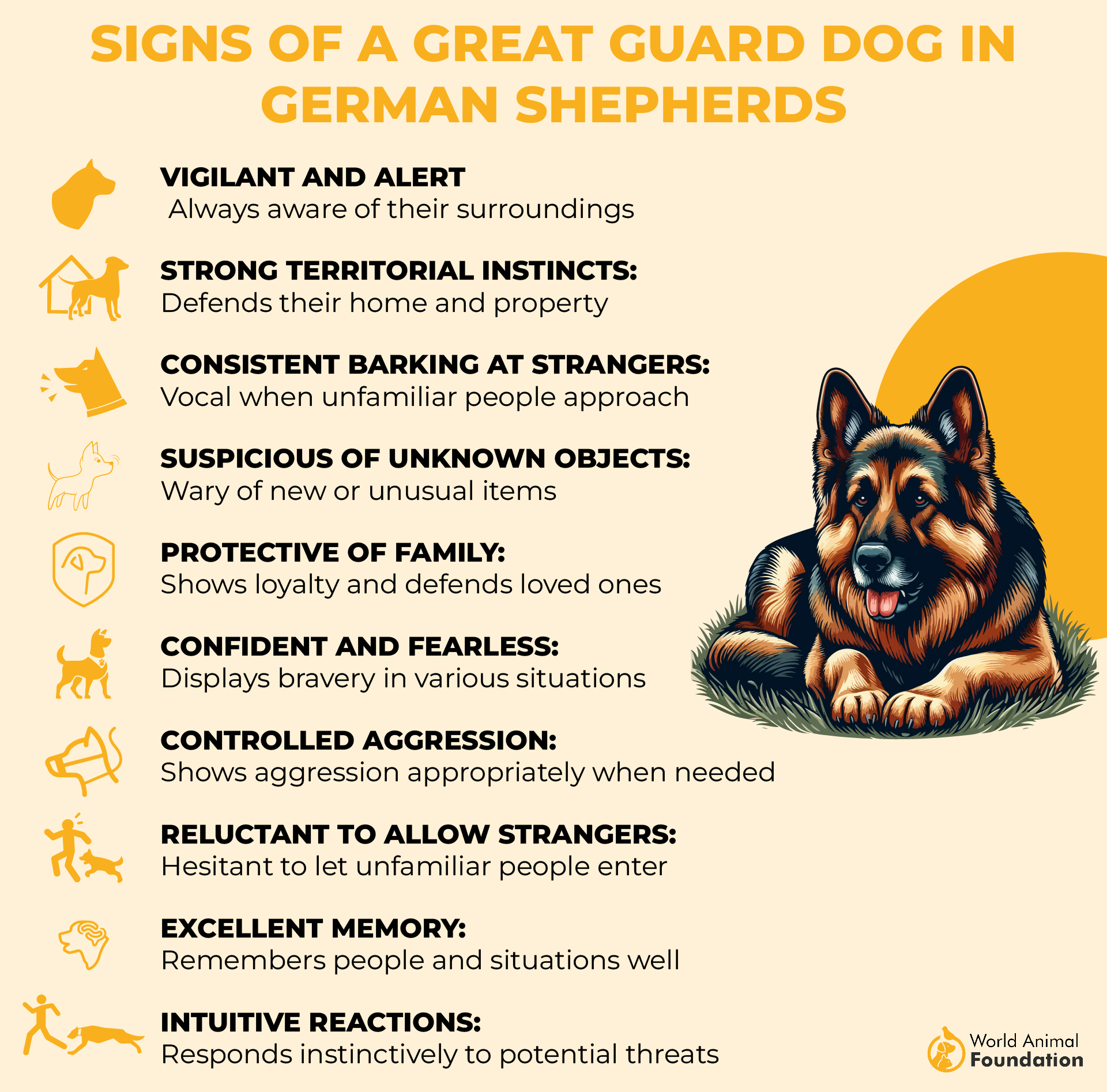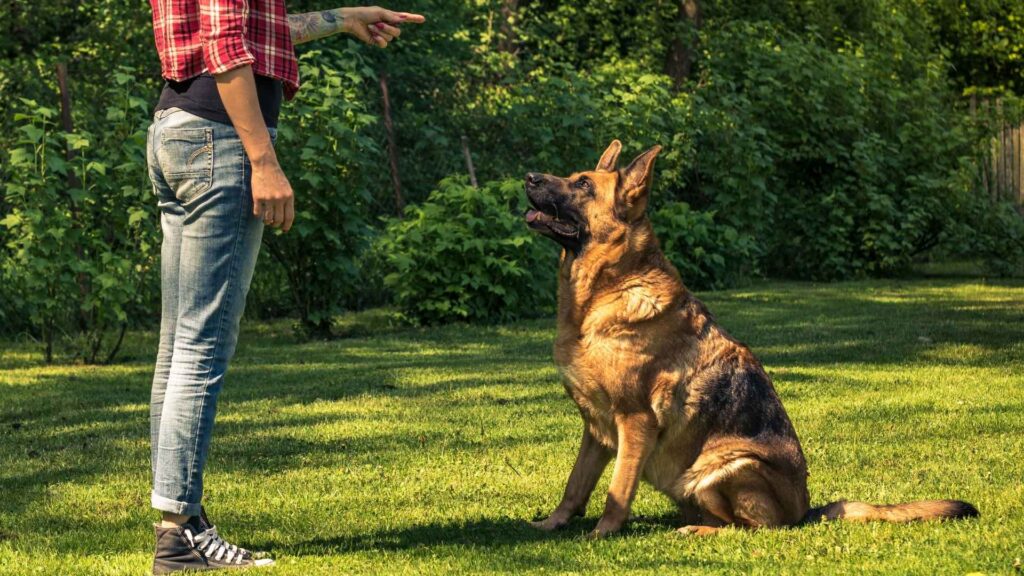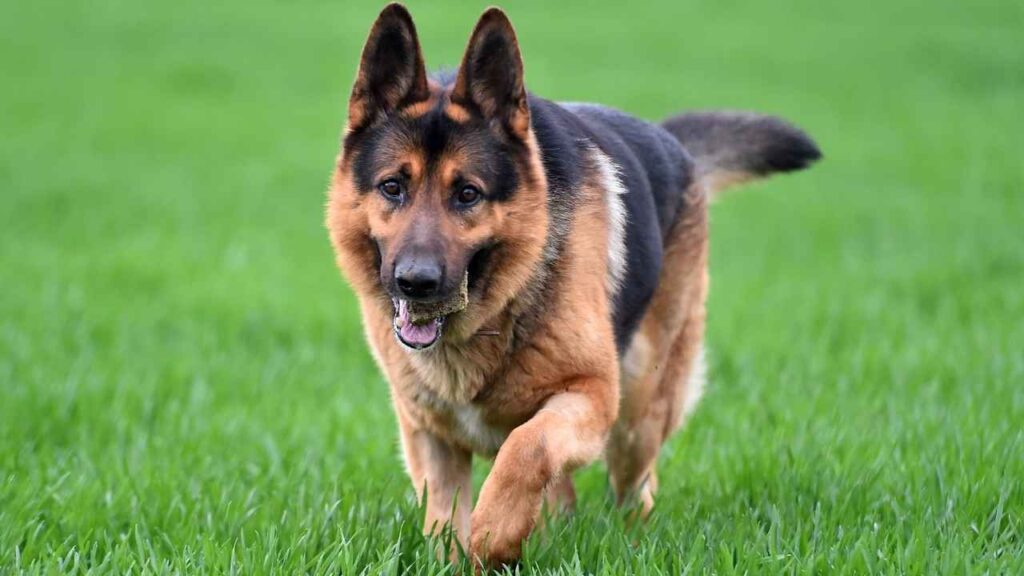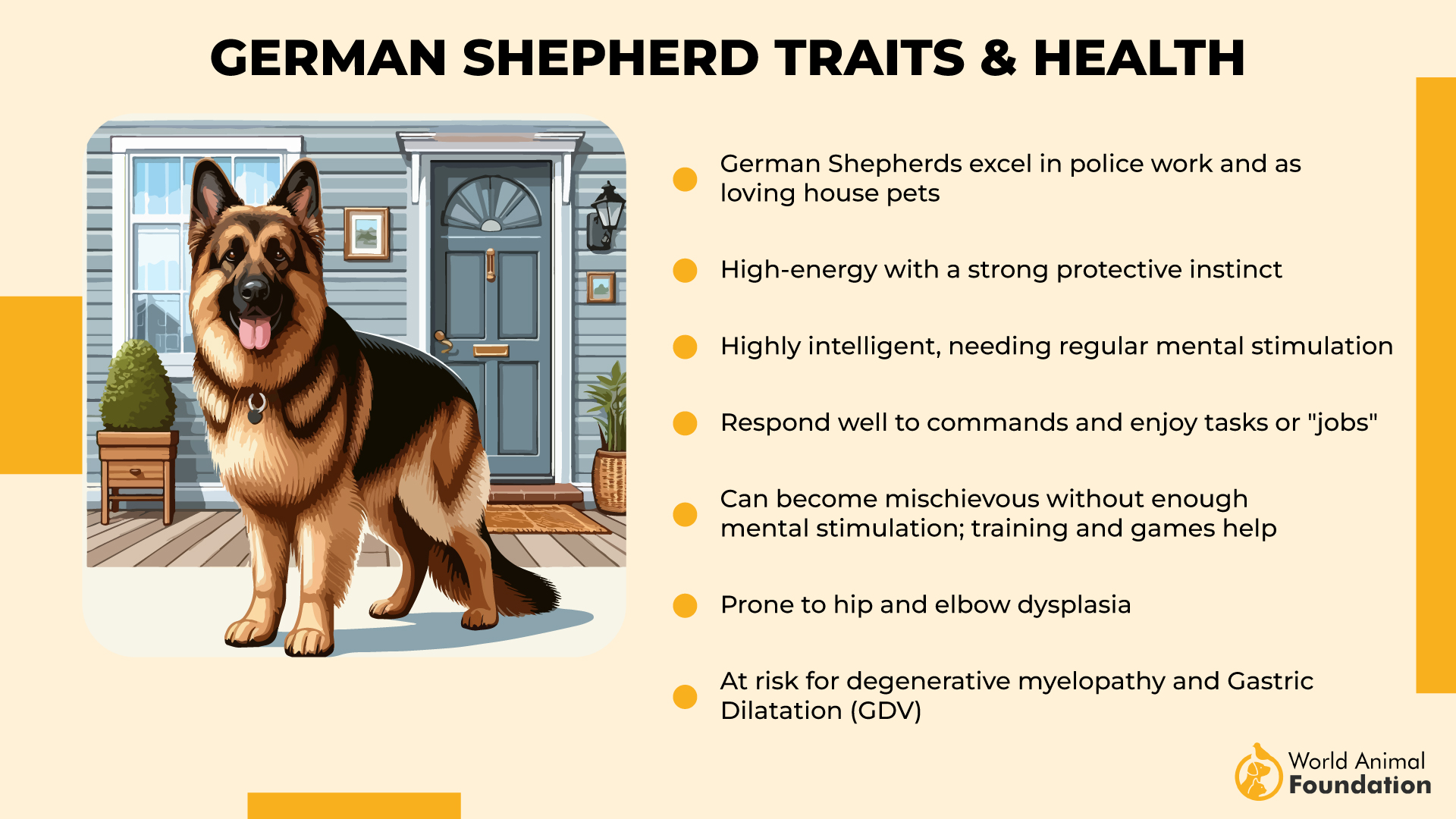Deciding on a family dog is an important choice, and understanding the breed’s compatibility with children can guide you toward a harmonious household. As loyal and intelligent companions, German Shepherds have made their mark not only as working and service dogs but also as beloved family pets. Yet, the question remains: Are German Shepherds good with kids? This exploration delves into the traits that make them potentially great family friends and the factors to consider when introducing a German Shepherd to a family with children. Discover how these remarkable dogs can fit into a loving family dynamic.
German Shepherds trace their origins to late 19th-century Germany, where they were bred as herding dogs with intelligence, loyalty, and a strong work ethic claims Britannica. While their roots lie in protecting flocks, today, they’re famous for guarding families, serving as police dogs, and being great family pets.
As someone who’s had the joy of raising these incredible dogs, I can confidently say they’re great companions for children. Their protective instincts are unmatched, but like any dog, they need proper training and supervision—especially around small kids who shouldn’t be left unsupervised with any pet.
What makes German Shepherds so unique is their ability to form a deep bond with every person in the household. Whether you’re playing fetch in the yard or enjoying quiet moments at home, their love and loyalty shine through, making them exceptional additions to any family.
Are German Shepherds Good with Kids?
Absolutely, the answer is yes! German Shepherds are one of the most popular dog breeds for a reason—they’re intelligent, loyal, and protective. These traits make them excellent family pets, especially when raised with proper socialization and training. Their ability to adapt to family life is incredible, whether you’re bringing home a German Shepherd puppy or adopting an adult German Shepherd notes PetPlan.
However, like most dogs, they thrive in environments where they feel like a valued family member. With young children, a well-trained German Shepherd dog can be both a gentle companion and a watchful protector. Their herding dog instincts shine when they lovingly “supervise” small kids.
The key to success is introducing your German Shepherd to the family at an early age and ensuring they’re properly socialized. This helps them grow into gentle dogs who are comfortable around people, other animals, and even small children.
Are German Shepherds Family-Friendly?
Yes, German Shepherds are wonderful family pets! Their affectionate and loyal temperament makes them a joy to have around the house. Whether they’re a young puppy or an older German Shepherd, they can adapt to family life and thrive as good family dogs.
Their protective instinct is what sets them apart from other breeds. A GSD doesn’t just see your house as a home—it’s their castle to protect as per PetMD. But don’t let their “serious” reputation fool you; these lovely dogs also know how to be goofy and fun with their families. They’re as much about playtime as they are about protection.
With proper training and mental stimulation, this breed of dog bonds deeply with its family, offering both companionship and a sense of security. Just make sure they have their own dog’s space to relax and recharge when needed.
Will They Scare My Kids?
It’s true: German Shepherds are big dogs, and their size can seem intimidating at first. But looks can be deceiving! These gentle dogs are known for their ability to be calm and loving around small children when properly trained. A well-trained German Shepherd is as approachable as a Labrador.
Their protective nature can work in your favor. Instead of scaring your kids, they often become a source of comfort, offering reassurance with their steady presence. A German Shepherd dog doesn’t mean harm—unless it feels truly threatened, which is rare when they’re part of a happy household.
Remember, a dog’s life depends on proper socialization. If introduced to children and other animals at a young age, they’re less likely to feel threatened and more likely to become great family pets.
Understanding Their Temperament
The German Shepherd temperament is a blend of intelligence, loyalty, and energy. They’re quick learners, which is why they’re often chosen as police dogs or service dogs. But don’t worry—they’re not all work and no play. These dogs know how to relax and enjoy family life too.
Their protective instinct is one of their most endearing qualities, but it’s important to channel this correctly. Without proper training, they may become overprotective, which isn’t ideal for interactions with small kids or other pets. A German Shepherd thrives
when they feel part of the pack, so including them in daily activities helps them shine advice Hillspet.
These dogs are naturally curious and love mental stimulation. Keeping their minds engaged through toys, training, and exercise will make them happier companions and fantastic family members.
Early Socialization of German Shepherd Puppy
Socialization is a big deal for German Shepherds. Starting at a young age, expose them to various people, places, and other pets to ensure they grow into well-adjusted dogs. A properly socialized German Shepherd is confident, calm, and friendly in new environments.
This isn’t just for their benefit—it makes life easier for you, too. For example, a German Shepherd puppy that’s used to being around other animals will behave better at the park and around visitors. It’s much easier to have a good dog when they’ve learned how to interact appropriately with their surroundings.
Don’t leave them unsupervised with small children or other dogs during the early stages. Proper supervision and consistent training set the foundation for a harmonious household.
Obedience Training Basics For German Shepherd Dog
German Shepherds love to learn, so obedience training is essential for unlocking their full potential. Start training during the puppy stage, when they’re most impressionable. This helps establish good habits and ensures they grow into a well-trained German Shepherd.
Focus on commands that promote safety, like “sit,” “stay,” and “leave it.” These commands can prevent accidents, especially around small kids or other animals. With consistent training, your GSD will quickly learn the rules of the house and how to behave appropriately.
Training sessions are also a great opportunity to bond with your dog. Remember, every lesson you teach contributes to their development as a loyal and gentle family member.
Exercise and Mental Needs
German Shepherds have a high energy level, so physical activity and mental stimulation are non-negotiable. As a working dog breed, they thrive when they have a job to do, whether it’s fetching toys or joining you on a morning jog.
PDSA recommends that daily exercise is crucial to prevent boredom, which can lead to destructive behavior. A tired German Shepherd is a happy German Shepherd! Make sure to include activities that challenge their intelligence, like puzzle toys or agility training.
Meeting their needs not only keeps them healthy but also makes them more relaxed around the house, turning them into the perfect family pet.
Teaching Kids Dog Etiquette
Teaching kids how to behave around dogs is just as important as training the dog itself. Kids should learn to respect a dog’s space, avoid rough play, and recognize when the dog needs a break. This ensures safe interactions and prevents misunderstandings.
Explain that tail pulling, climbing, or startling the dog is a big no-no. Even gentle dogs like German Shepherds can feel uncomfortable if boundaries aren’t respected. Encouraging positive interactions, like offering treats or playing fetch, builds trust between your kids and the dog.
With mutual respect and a bit of guidance, your German Shepherd and your children will quickly become best friends for life.
German Shepherd Characteristics and Care
| Weight | 50–90 lbs (22–41 kg) depending on gender and individual. |
| Height | 22–26 inches (56–66 cm) at the shoulder. |
| Size | Medium to large-sized breed, muscular and athletic build. |
| Barking | Moderate to high; can be vocal, especially when alerting or guarding. |
| Skills | Intelligent, trainable, and excellent in obedience, herding, and protection tasks. |
| Bite Force | Approximately 238–291 PSI, among the strongest of all breeds. |
| Speed | Can reach speeds up to 30 mph (48 km/h) in short bursts. |
| Grooming Cost | $30–$60 per session; regular brushing at home can reduce professional grooming needs. |
| Maintenance Cost | $1,200–$2,000 annually, including vet care, grooming, and supplies. |
| Diet Needs | A high-quality diet with protein-rich food; approximately 3–4 cups daily depending on activity level. |
German Shepherds are energetic and playful, which can sometimes get them (and you!) into trouble. To ensure safety during outdoor activities, investing in the best dog collar for your German Shepherd is crucial.
Conclusion
In conclusion, German Shepherds can be exceptional family pets when given proper training, socialization, and attention to their needs. Their loyalty, intelligence, and protective instincts make them one of the most beloved dog breeds worldwide. While their size and energy might seem daunting to some, it’s never the dog’s fault—it all comes down to how they’re raised and handled.
If you’re considering bringing home your first dog, a German Shepherd could be a fantastic choice with the right preparation. However, they do require commitment, similar to other high-energy breeds like Border Collies, to ensure they thrive. Leaving them unsupervised for long periods or failing to meet their mental and physical needs can lead to challenges.
Additionally, proper introductions are crucial when they share space with babies, small children, or other pets like cats. With the right approach, German Shepherds integrate seamlessly into most homes.
Ultimately, whether it’s a German Shepherd or another breed, like Labradors or Beagles, every dog deserves a loving environment and responsible care. Remember, a well-trained dog is not just a pet but a cherished family member!
German Shepherds can be excellent companions for children, provided they are well-trained and socialized from a young age. Known for their intelligence, loyalty, and protective nature, German Shepherds often form strong bonds with family members, including kids. Their patience and playful demeanor can make them wonderful playmates. However, due to their size and strength, it’s crucial for interactions between German Shepherds and children to be supervised, ensuring that both the dog and child understand boundaries and proper behavior. With the right training and environment, German Shepherds can be loving and trustworthy family pets.

